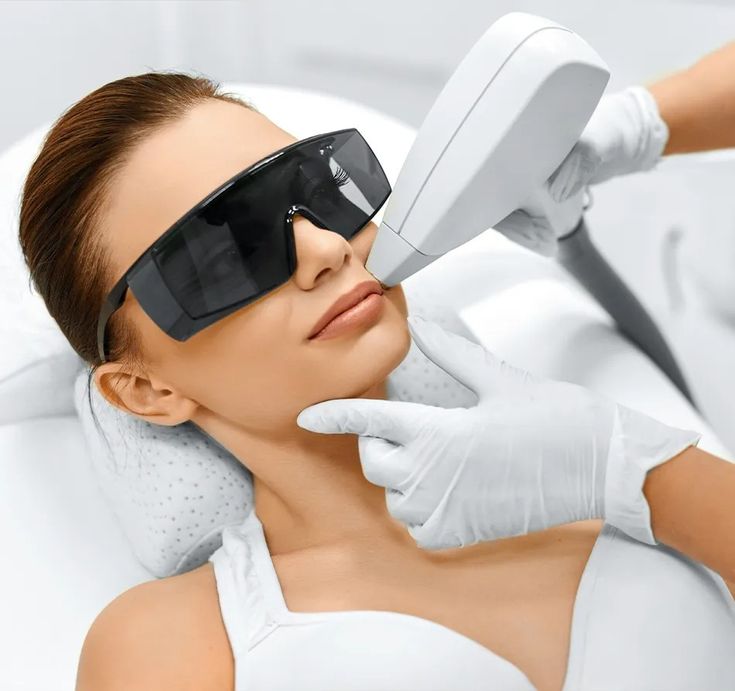Can Laser Hair Removal Cause Cancer?
Can Laser Hair Removal Cause Cancer?
Laser hair removal has become increasingly popular as a long-term solution for unwanted hair. However, amidst its popularity, concerns have arisen regarding its safety, particularly whether it can cause cancer. In this article, we delve into the science behind laser hair removal and its potential risks.
Laser Hair Removal
Laser hair removal is a cosmetic procedure that uses concentrated light to target hair follicles, inhibiting future hair growth. The process involves emitting a beam of light that is absorbed by the pigment in the hair follicles, damaging them to prevent regrowth. Despite its effectiveness, there are misconceptions surrounding its safety, including the fear of cancer development. Also, read about How to Get Hair Dye off Skin Easily
Potential Risks and Side Effects
Like any medical procedure, laser hair removal comes with potential risks and side effects. Temporary side effects such as redness, swelling, and mild discomfort are common immediately following treatment. However, concerns have been raised about the possibility of long-term risks, including skin damage and even cancer.
Research has shown that the risk of cancer from laser hair removal is minimal. While some studies have suggested a potential link between certain types of lasers and skin cancer, the evidence remains inconclusive. Most experts agree that the amount of radiation emitted during laser hair removal is too low to cause cancer.
Scientific Research and Studies
Numerous scientific studies have investigated the association between laser hair removal and cancer risk. However, the findings have been conflicting, with some studies suggesting a slight increase in risk, while others have found no significant correlation. One of the main challenges in studying this topic is the lack of long-term data on patients who have undergone laser hair removal.
The Role of UV Radiation
It’s important to differentiate between the types of radiation emitted during laser hair removal and those known to cause cancer, such as UV radiation from the sun. Unlike UV radiation, which penetrates deep into the skin and can damage DNA, the light used in laser hair removal primarily targets the surface of the skin and hair follicles.
Nevertheless, it’s essential to take precautions during laser hair removal treatments, such as wearing protective eyewear and ensuring the skin is adequately cooled to minimize any potential risks. Discover more about Does Creatine Cause Hair Loss

Safety Measures during Laser Hair Removal
To mitigate any potential risks associated with laser hair removal, it’s crucial to seek treatment from qualified professionals who use FDA-approved devices. Additionally, individuals with sensitive skin or a history of skin conditions should consult with a dermatologist before undergoing treatment.
During the consultation process, patients should discuss any concerns or medical conditions with their healthcare provider to ensure that laser hair removal is a safe option for them.
Patient Concerns and Questions
Many individuals considering laser hair removal have questions and concerns about its safety. It’s essential to address these fears openly and provide accurate information to alleviate any anxieties. Patients should feel empowered to ask questions and discuss any apprehensions with their healthcare provider before proceeding with treatment.
Alternatives to Laser Hair Removal
For those wary of laser hair removal, there are alternative methods of hair removal available. These include shaving, waxing, threading, and depilatory creams. Each method has its pros and cons, and individuals should weigh their options based on factors such as effectiveness, convenience, and cost.

Real-life Experiences
While scientific evidence is essential, hearing from individuals who have undergone laser hair removal can provide valuable insights. Many people report positive experiences with the procedure, noting its effectiveness and long-lasting results. However, it’s essential to approach these anecdotes with caution and remember that individual experiences may vary.
Tips for Safe and Effective Treatment
To ensure safe and effective results, individuals should research and choose a reputable clinic with experienced practitioners. It’s also essential to follow pre and post-treatment instructions carefully, including avoiding sun exposure and moisturizing the skin regularly.
Conclusion
In conclusion, while the fear of cancer from laser hair removal is understandable, the scientific evidence suggests that the risk is minimal. By taking appropriate safety precautions and seeking treatment from qualified professionals, individuals can enjoy the benefits of laser hair removal with peace of mind.
